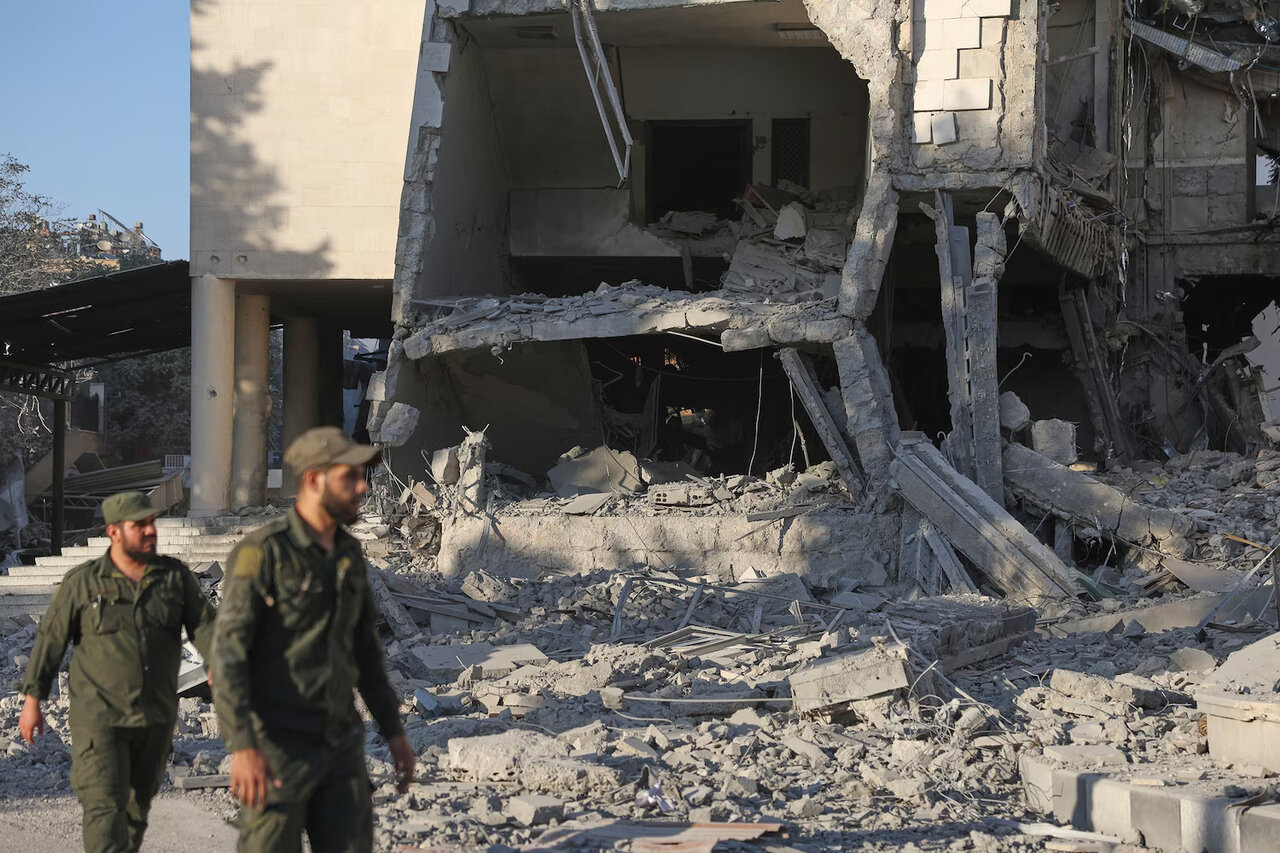Iran condemns EU’s ‘moral hypocrisy’ on Israeli aggression against Syria

TEHRAN – Iranian Foreign Ministry spokesman Esmaeil Baqaei has issued a scathing critique of the European Union’s response to the Israeli regime’s latest airstrikes in Syria, denouncing Brussels for “gaslighting at its finest” by characterizing the attacks as merely 'escalating strikes' rather than acts of aggression.
In a statement posted on X on Friday, Baqaei declared: “By (mis)characterizing Israel’s blatant act of aggression as ‘escalating strikes on Syrian territory,’ the EU disclaims even the pretense of moral integrity.”
He condemned the framing as a cynical effort to dress “complicity” up as “diplomacy,” stressing that Iran “rejects selective indignation and double standards” while standing “loud and clear” with Syria’s sovereignty.
In a statement on Wednesday, EU spokesperson Anouar El Anouni said the bloc is “alarmed by the continued clashes in Suwayda,” and “strongly condemns the reported violence against civilians."
The remarks follow a series of Israeli airstrikes and violent clashes between Druze factions and Bedouin tribes, which have claimed over 700 lives since mid-July, according to the UK-based Syrian Observatory for Human Rights.
The Israeli regime is accused of exploiting the Druze minority as a justification for its military operations, potentially aiming to deepen divisions within Syria.
Many view these developments as part of a broader project, kicked off by the fall of Bashar al-Assad’s government in December 2024 and the rise of HTS leader Abu Muhammad al-Julani’s (Ahmad al-Sharaa’s) regime, with massive backing from the West, NATO members such as Turkey, and Arab states in the Persian Gulf such as Qatar and the UAE—an agenda that has since spiraled wildly out of control.
This perspective is echoed by figures within Iran. Major General Mohsen Rezaei, former commander of the Islamic Revolution Guard Corps (IRGC), reacted sharply to these developments, condemning al-Jolani’s regime as a “Western project” that has capitulated to Israeli dictates.
Rezaei warned: “‘Peace through power’ means: Surrender the Golan Heights, accept Tel Aviv’s conditions, open doors to the U.S., and do not protest when bombed. This is the region’s new unwritten law. Arabs, wake up!”
His statement reflects Tehran’s assessment that normalization talks mask a coercive campaign to legitimize Israel’s expansionism.
Reports of secret negotiations between figures from the new Syrian regime and Israeli counterparts in Azerbaijan and the UAE, with possible concessions like the Golan Heights on the table, underscore Israel’s belief that a weakened and fragmented Syrian government can be pressured into yielding further strategic ground.
Recent developments also may reveal a calculated Israeli strategy to fragment Syria, leveraging the Druze community’s unrest as justification for military intervention.
According to regional analysts, Tel Aviv may also aim to establish a territorial corridor—dubbed the “David Corridor”—stretching from the occupied Golan Heights through southern Syria’s provinces of Daraa, Quneitra, and Suwayda, ultimately linking to Kurdish-held territories in the northeast.
This corridor would aim to make the Israeli regime the dominant military power in West Asia with new capabilities, neutralize cross-border resistance, and grant Israel control over Syria’s water resources while paving the way for the formal annexation of the Golan Heights.
Amid this turmoil, recent developments have introduced a tentative shift in the conflict. U.S. envoy Tom Barak announced a ceasefire agreement between Israel’s Prime Minister Benjamin Netanyahu and Syria’s al-Jolani, with backing from Turkey and Jordan.
Barak urged the Druze, Bedouins, and Sunnis to “lay down their arms and contribute to a united Syria.”
However, the situation remains fragile, as clashes persist in Suwayda city as of Saturday.
The Syrian regime has deployed forces to Suwayda to enforce order and curb further violence, signaling its intent to stabilize the region.
Additional statements from key figures highlight the complexity of the ceasefire efforts. Al-Jolani talked about “national unity and the protection of all Syrian communities.”
The Druze leadership, through Sheikh Hikmat al-Hijri, appears to have echoed this sentiment, advocating an end to hostilities with the Bedouins to restore peace.”
The Bedouins’ stance is less defined, though ongoing clashes suggest that some factions may resist the ceasefire without specific assurances or conditions being met. Recent reports also claim that HTS forces have at times used Arab Bedouin tribes as cover, further complicating efforts to build trust and enforce the truce.
Leave a Comment